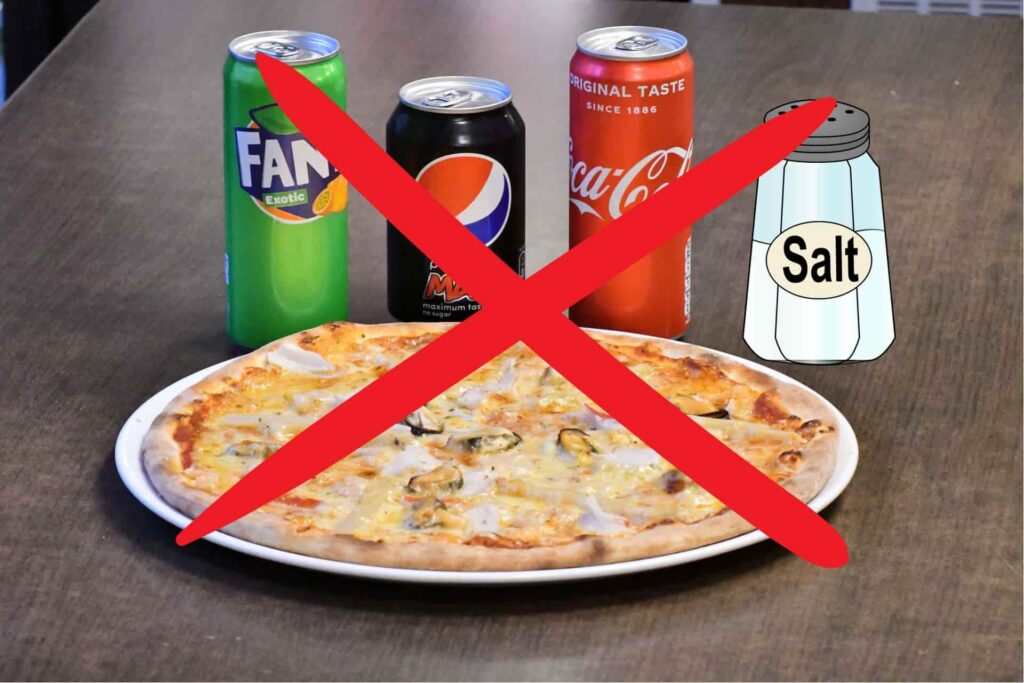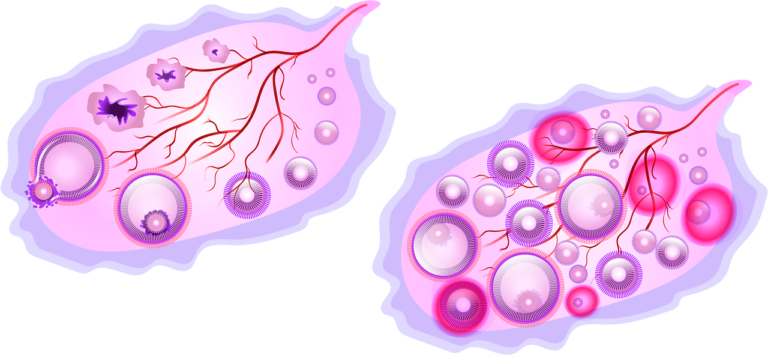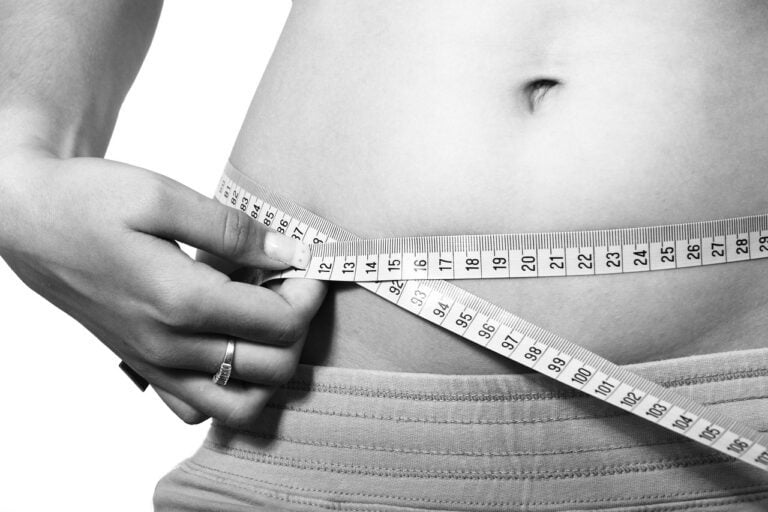Are you someone who is struggling with thyroid-related weight issues and is desperately seeking the best diet for thyroid patients to lose weight? Park yourself here because you have come to the right place. The battle to lose weight with a thyroid disorder can be an uphill climb, but there’s hope and where there is hope, there is a way. With the right approach to your diet and some lifestyle modification, you can definitely achieve your weight loss goal and improve your overall well-being.
What you can expect:
Our mission is to provide you with a comprehensive guide that is backed by the latest research, offering scientific and practical solutions to address the unique challenges thyroid patients face in their weight loss journey.
We assure you from our side that you will receive the most precise and effective recommendations for your particular needs because our guidance is based on in-depth research and professional insights. We have examined the most recent scientific research, spoken with top medical experts, and gone through the firsthand experiences of thyroid patients who have effectively controlled their weight.
Recent studies and research in the field of thyroid health have provided insight into the vital relationship between nutrition and body weight control for thyroid patients. Research has indicated that people with hypothyroidism, a condition marked by an underactive thyroid, frequently experience unexpected weight gain as a result of a slower metabolism.
On the other hand, because of their accelerated metabolism, people with hyperthyroidism—an overactive thyroid condition—typically lose weight unintentionally.
You can expect evidence-based dietary recommendations, meal plans, and lifestyle tips that can make a real difference in your pursuit of a healthier weight and a happier life.
This post is not about just diets. It is about understanding your body, adopting a healthy lifestyle, and starting a natural transformational journey to create a better, healthier version of yourself. Let’s start this journey to better thyroid health together.
Let’s get going now!
Table of Contents
ToggleDifferent types of thyroid conditions
Before we get into the details, it’s important to understand the two different forms of thyroid disorders:
Hypothyroidism:
This occurs when your thyroid gland fails to produce enough hormones, resulting in symptoms such as tiredness, increased body weight, and cold sensitivity.
Hyperthyroidism:
Hyperthyroidism, on the other hand, occurs when your thyroid gland generates excessive hormones, resulting in symptoms such as weight loss, anxiety, and excessive sweating.
The role of thyroid health in controlling weight
Thyroid health plays a vital role in managing your weight. Let’s take a look at each condition.
Weight gain and hypothyroidism:
Hypothyroidism can slow down your metabolism, which frequently results in gaining extra weight. You should focus on increasing your metabolism and controlling your caloric intake in order to manage this problem. We will talk about it later in detail.
Weight loss and hyperthyroidism:
In cases of hyperthyroidism, the metabolism becomes accelerated, resulting in weight loss. The objective here is to supply your body with nutrients while preventing weight loss.
Important dietary factors for healthy thyroid function

Regardless of which thyroid condition you may have, a diet that supports thyroid health adheres to certain principles.
The best diet for thyroid patients to lose weight
The best diet for thyroid patients to lose weight is a healthy and balanced diet that is rich in fruits, vegetables, and whole grains. It is also important to limit your intake of processed foods, sugary drinks, and unhealthy fats.
Balanced macronutrients
A balanced diet promotes your basic health and keeps you energetic all day long. So make sure your diet of healthy fats, proteins, and carbs are balanced.
Significance of key micronutrients
Selenium and iodine are essential minerals for the thyroid to function properly. These are present in a variety of meals, which we will discuss in a moment.
Foods you should include
You should try including the following foods in your diet in order to support the health of your thyroid:
1. Nutrients that support the thyroid
Iodine-rich foods: iodized salt, seafood, and seaweed.
Sources of Selenium: Turkey, sunflower seeds, and Brazil nuts are good sources of selenium
Omega-3 Fatty Acids: They help to reduce inflammation and are found in fish, flaxseeds, and walnuts.
2. Selections of lean protein
To ensure good muscle mass, use lean protein sources like turkey, chicken breast, and lentils (a source of plant-based protein and fibre).
3. Choose high-fiber food
Including high-fibre-rich foods in your diet makes you full of appetite for a long time. It also facilitates digestion.
Some examples of high-fiber foods are:
Whole grains: Whole wheat flour, Brown rice, Barley, Oats, etc
Fruits: Avocado, Strawberries, Pears, Apples, Raspberries, Bananas, etc
Vegetables: Broccoli, Asparagus, Peppers, Cauliflower, chickpeas, Spinach, carrots, etc.

Foods not to eat
You should avoid the following foods if you want to safeguard your thyroid:
Foods that cause goitre
Certain foods, such as cabbage and broccoli, can affect how the thyroid functions. However they don’t have to be avoided completely, you just need to moderate them.
Too much-processed salt and sugar
It is advisable to restrict processed sugar and salt in your diet since they can cause abnormalities in your blood pressure and metabolism.
Reduce your salt intake to the suggested daily allowance of less than 5 g. The majority of people eat insufficient amounts of potassium and too much sodium (about 9–12 g of salt each day). Excessive intake of salt and inadequate intake of potassium (less than 3.5 g) raises blood pressure, which raises the risk of heart disease and stroke.
(Data Source: WHO)
You can reduce salt consumption by:
- not enhancing food preparation with salt, soy sauce, or fish sauce.
- not having salt on the table
- limiting the consumption of salty snacks
- reading food labels and selecting items with reduced sodium chloride levels.
- Adding more potassium to your diet by eating fresh fruits and vegetables can help reduce the harmful effects of a high sodium intake on blood pressure.

Limit your consumption of added sugars to no more than 10% of your overall caloric intake. Further reducing the consumption of free sugars to less than 5% of total energy provides additional health benefits.
(Source: WHO)
Eating sugar without added sugar raises the risk of gum disease or tooth decay. Consuming too many calories from foods and beverages that are high in free sugar can result in unnecessary weight gain and obesity.
You can minimize your sugar intake by:
- Limiting the consumption of foods and drinks containing high amounts of sugar (e.g., sugar-sweetened beverages, sugary snacks and candies).
- consuming raw veggies and fresh fruits as snacks rather than eating snacks that are sweet.
Meal preparation
To maintain your weight and take care of your thyroid condition, meal planning is very important. The following meal plans are examples:

For hypothyroidism
- Breakfast: Oatmeal with a few nuts and fruit.
- Lunch: consists of a large salad of grilled chicken and lush greens.
- Dinner: baked salmon over quinoa and steamed broccoli.
For hyperthyroidism
- Breakfast: Greek yogurt with honey and banana slices.
- Lunch: Lentil soup with a side of mixed vegetables.
- Dinner: Roasted tofu with brown rice and stir-fried bok choy.
Function of exercise
Regular exercise is essential for thyroid patients who want to control their body weight. Aim for at least 30 minutes of moderate-intensity exercise 3-5 days a week.
Simple exercises for hypothyroidism
Walking and swimming are examples of low-impact exercises that can increase your metabolism without overburdening your body.
Managing energy levels in hyperthyroidism
When treating hyperthyroidism, prioritize deep breathing exercises and yoga as relaxing techniques to reduce stress and conserve energy.
Lifestyle tips
We talked with some experts and professionals and here we come up with these crucial lifestyle tips to boost your thyroid health in addition to control over dietary intake and workouts:
Stress control
Thyroid problems can get worse under stress. Consider practising meditation, self-awareness, hobbies or activities that are soothing and relaxing for your mind.
Take quality sleep
To keep yourself refreshed and active, which promotes your overall health, try to get at least 6–8 hours of good sleep every night.
Regular monitoring along with treatment
For patients with thyroid conditions, routine monitoring and drug management are crucial. Do not stop taking your medicine by yourself. Make sure you listen to your physician’s advice and schedule routine examinations.
Real-life success stories
Success stories from real life can be motivational. Read about people who have effectively controlled their weight by making adjustments to their eating and living habits.
Overcome the challenges and temporary failures
Despite your full dedication and efforts, you might face challenges and failure. But you just have to be committed to your goals and stick to your daily routines. Keep yourself motivated and ask for expert assistance whenever required.
Tips for dining out
It can be difficult to choose healthy foods when dining out, but these suggestions might help you:
Choosing nutritious foods
Take steamed, roasted or grilled foods, and request dressings and sauces separately.
Communicate with restaurant staff
Do not hesitate to tell waiters about your dietary needs and restrictions. Most of them are happy to accommodate your needs.
Supplements that support thyroid health
Supplements could occasionally help to maintain thyroid health.

Minerals and vitamins
One of the most important vitamins that affect your weight loss journey upside down is vitamin D. It maintains thyroid levels and melatonin secretion. It also facilitates your metabolism which further helps with weight loss goals. If you are deficient in iron or vitamin D, talk to your doctor about taking these vitamins.
Ayurvedic or herbal supplements
Herbs such as guggul and ashwagandha have potential benefits, but they should only be used under a doctor’s supervision.
Looking for expert advice
It is best to speak with a healthcare provider for individualized guidance and monitoring, especially an endocrinologist or a registered dietitian.
Thyroid diet myths you may hear often
There are various misconceptions about thyroid diets, that you should ignore. One such common myth is the belief that you can only eat certain foods. Busting these beliefs and emphasizing a healthy, balanced diet are crucial.
Remember, you cannot fully control your thyroid with any diet plan but you can definitely control and support your weight-loss journey with a balanced healthy diet.
Key takeaways
The following key points should be kept in mind while choosing the best diet for thyroid patients to lose weight:
- Recognize the particular thyroid conditions you have.
- Include vital micronutrients and maintain a balance between your macronutrients.
- Choose dietary choices that will help your thyroid.
- Plan your meals according to your health complications.
- Include workouts, yoga and other relaxing activities.
- Take quality sleep and regular monitoring as a priority.
- Stay dedicated to your objective and look for expert assistance if needed.
Expert words
We sought the expert advice of thyroid specialist doctors on food and weight loss:
Endocrine Specialist Dr. Ankur Sinha
“Dietary balance is essential for people with thyroid conditions. A comprehensive strategy can have a big impact.”
Dr Shalini Patlolla, thyroid and endocrine specialist
“Keep in mind that there is no quick or magic solution to losing weight. Be disciplined in your daily lifestyle and consult a healthcare professional to customize your diet to meet your unique requirements.”
Conclusion
To sum up, the best diet for thyroid patients to lose weight involves a well-balanced approach that includes knowing your specific conditions, wisely choosing your diet, regular exercise and stress management, and maintaining an overall healthy lifestyle.
Remember, improving your whole well-being is more important than only losing weight. Thus, start the journey to a healthy you by consulting with your healthcare physician to develop a customized plan that suits your needs. By following this, you can definitely lose weight and control your thyroid health.
FAQs ( Frequently Asked Questions):
Now, let’s address some common questions about thyroid and weight loss diet:
1. If I have a thyroid disease, can I still follow a typical weight loss diet?
It is advisable to speak with a medical expert to create a customized strategy that takes your thyroid condition into account.
2. With a thyroid problem, are there any particular foods I should entirely avoid?
No food is completely forbidden, although it’s best to restrict processed foods and those that are heavy in refined sugars and carbohydrates. You can enjoy your favourite foods too but in moderation.
3. How long does a thyroid-friendly diet usually take to produce weight-loss results?
Everybody has a different timeframe. Exercise and diet must be done consistently.
4. Can I manage my weight with a thyroid problem only by food and skipping exercise?
Exercise supports a diet that is thyroid-friendly and can help with weight management naturally and overall health.
5. Do thyroid patients who follow a certain diet need supplements?
Before taking supplements, you must speak with a healthcare provider. They might be advised in some circumstances to treat particular dietary deficiencies.
6. If I have Hashimoto’s disease, can I still lose weight with these dietary habits?
Yes, Hashimoto’s disease is also treatable using the same strategies as described in this article.







6 thoughts on “Best Diet for Thyroid Patients to Lose Weight”
Nice
Thank you for your valuable feedback.You can explore other articles for more such informations.
Very helpful.
Thank you for your valuable feedback.You can explore other articles for more such informations.
Great job
Very informative blog
Very helpful